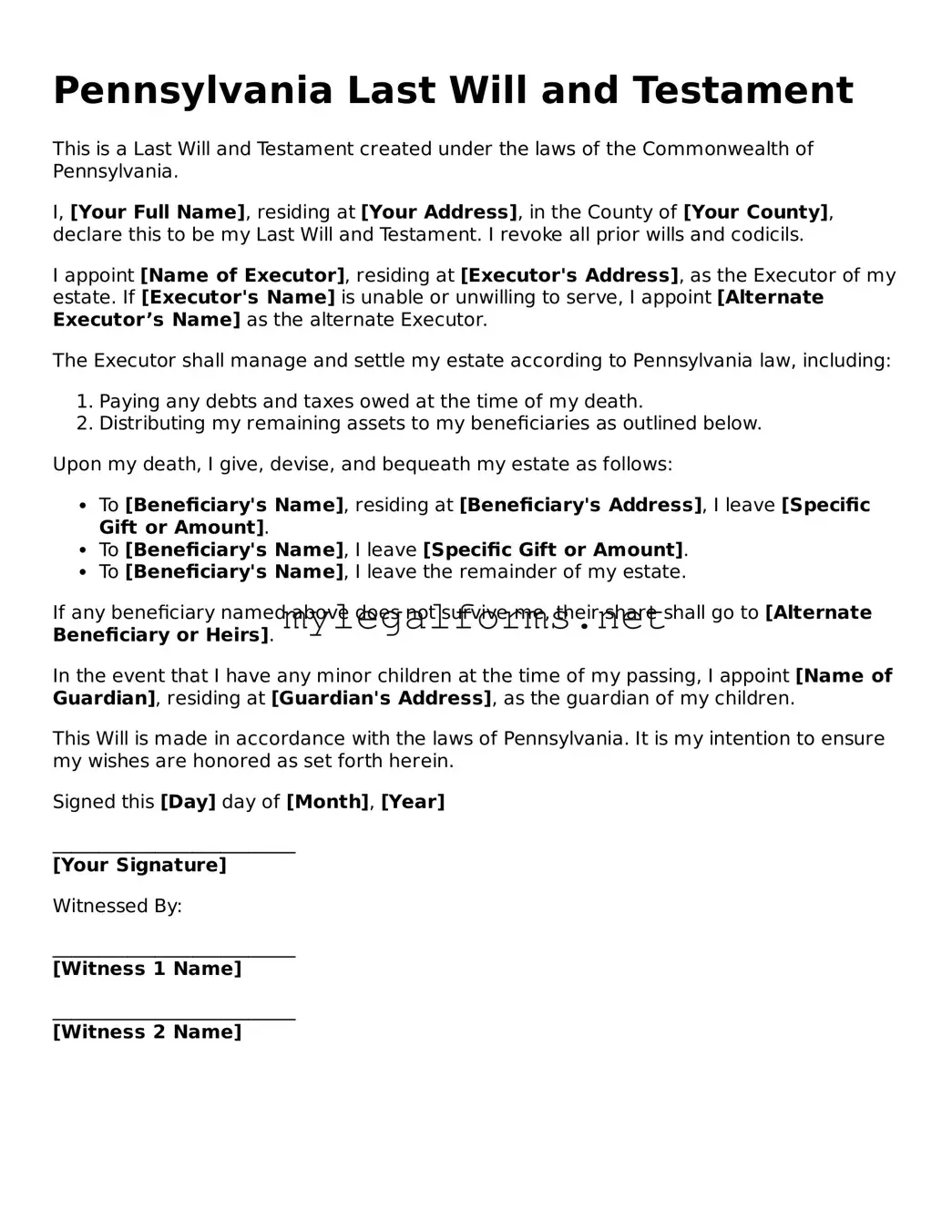Last Will and Testament Document for Pennsylvania State
The Last Will and Testament form in Pennsylvania is a legal document that outlines how a person's assets and affairs should be managed after their death. This form allows individuals to express their wishes regarding the distribution of their property, guardianship of dependents, and other important decisions. Understanding this document is crucial for ensuring that one's intentions are honored and that loved ones are taken care of according to their wishes.
Launch Last Will and Testament Editor

Last Will and Testament Document for Pennsylvania State
Launch Last Will and Testament Editor

Launch Last Will and Testament Editor
or
⇓ PDF Form
Complete the form at your pace — fast
Finish your Last Will and Testament online and download the final version.